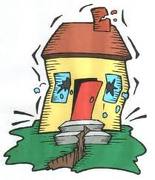|
NEWS FROM THE THERAPY ROOM. Tips and strategies that you can use in your own relationships. |
|
These words have been distracting me over the last few days, and I've been trying to figure out what they might mean for me. Obviously they will have different meanings for different people..
Since 2005 these words have been attributed to Steve Jobs, the king of Apple. They sound quite philosophical for someone who actually sounds like a megalomaniac. They were attributed to him because he used them to close his address to a graduation ceremony at Stanford University. However, they go way back prior to this, and were first used by Stephen Brand when he wrote the last page of the final edition of The Whole Earth Catalogue, back in the 1970's. Any Flower Children from the 70's (whose brains are still reasonably intact, and not too worn out from excessive use of hallucinogens) might remember The Whole Earth Catalogue. It was founded by some young & idealistic folks of the period, who were led by Brand, and as Jobs said, it was probably the virtual grandparent to the Google of today. The function was probably similar- but being printed and published, it just all took a million times longer than any search engine of today. Anyway, the plan was that the Whole Earth Catalogue was to revolutionize the world, with its counter-cultural message, and was intended as not just a catalogue, but also as a tool for the exchange of ideas and the promotion of those products which were somehow seen as the antidote to industrialized America. And of course it was all developed in and around Hippy Central (later to become known as San Francisco), during the mid 1960's- 70's. What was Brand (and later, Jobs), really meaning with these words of farewell? Certainly it was unlikely that he was telling us to physically starve ourselves, when he said to stay hungry. But we know there is lots to be gained at a personal level if we stay hungry for the possibility of the new. Whether it is learning new stuff, trying new experiences, going to new places, experiencing new sensations. We should not have a mild curiousity, but instead a strong and driving hunger. So maybe that is reasonably clear..But what does it mean to stay foolish? I'm thinking that this is not about being foolish in the sense that we might also use the term 'stupid.'' Maybe though there similarities between foolishness and naivety- there are certainly times that is sensible even useful, to be naive, to be open, to be curious. I've certainly found that in therapy situations, and it will have relevance elsewhere. Taking a position of ''not knowing'' can mean people will often then go to some lengths to explain things in detailed black and white ways, as a result. By being very open about not knowing something may appear at a surface level as being foolish- we might make ourselves appear rather ''un-smart.,'' and most of us do not want to appear that way. Yet, what is worse than having someone try to explain something to us, when it is patently clear that they do not know what they are talking about, but will not say so? I have a belief that most of us need to be able to feel more comfortable about saying "I don't know...." Anyway, this is all probably something of an aside, and Brand did not likely mean that. Instead, he is simply suggesting that if we stay foolish, we are therefore not-knowing, and in need of educating, we will then be open to learn. In effect it is the same as staying hungry. By being either hungry, foolish or both, we will remain open to the potential for change and possibility. We've been going through some difficult times here in Christchurch, New Zealand over the last few days. Those of you who live here will know what I mean. For those that don't, and who don't pay too much to news broadcasts, our little city of 360,000 people has been hit by a series of earthquakes, which commenced at 4-35am Saturday, with a magnitude of 7.1. We have had well over 100 aftershocks since, with many of them being quite sizeable, and one this morning, that because it was so much closer to Christchurch, and was quite shallow, felt just as heavy-duty as the original. So it's been a state of emergency, with most people sustaining damage to homes, and some homes being lost completely.
Many of our heritage buildings in the city center have either been destroyed, or now pose a risk to safety, due to major structural damage, and will need to be demolished. This is very saddening, as for most people in most cities, a sense of pride is in part generated by our connectedness to our land-marks. These markers help us maintain links with who and what has come before us, and thus help define us and shape our sense of self. So I shudder to think what will replace these buildings, these important markers, during the years ahead. One thing that is amazing is the attitude of the people of Christchurch. Many people have had major loss to deal with, but somehow remain up-beat and positive. But of course, a disaster of this magnitude is never without personal impact. People are increasingly tense, due to the on-going nature of the aftershocks, not knowing when one will come next, nor how severe it may be. Worries are compounded through a lack of sleep. People have become hyper-vigilant, as many of the quakes have occurred at night, and so they are not sleeping. Fortunately the local services and authorities in Christchurch have been superb at helping people in a practical sense, in terms of dealing with damage to homes, etc. But at times like this, the act of good self-care (and care of others) is important. There is a heap of good information on the net, such as described at the site for the American Psychological Association. Some useful, yet basic things to keep in mind are as follows: (1) As is the case in most stressful situations, talking helps. This normalises things for us, and this is important. Unlike an event experienced that is unique to just you or your family, everyone in the community is going through this, in one way or another, everyone has an opinion, or an experience to share. This reminds us we are not dealing with this alone, it helps us to make sense of things and move forward. So it's important to talk, and also important to listen. I laughed when a friend said today, "what did we all talk about before the earthquakes?" (2) Routines help. Humans are creatures of habit, who thrive on routine. When everything around us seems chaotic or out of whack, we need to think about what parts of our lives can be made manageable, and that's usually where routines are important. Doing what we would normally do, or as close as we can get to this is important. Fitting some fun into that routine is important too in whatever way possible, even if it feels a bit shallow at the time. (3) Eat well, sleep well. Again, when things seem crazy and chaotic, it is easy to not eat or sleep as we should, which then means we are less equipped to cope with stress. During times of earthquakes, it may be important to find somewhere to sleep that feels safer than usual, if your own bed does not feel safe. We don't sleep if we feel vulnerable. You might need to sleep in another part of the house, or you might need to stay with someone, who lives somewhere that is potentially safer. If that is not realistic, people in the house need to sleep in relays, so that there is always someone awake and on lookout, who can quickly wake others as necessary. (4) We may be more emotional or reactive than usual. That's OK, and it's important to remember that this is all new stuff for most of us. Our personal emotional responses are not going to be tidy and predictable, nor are they going to be consistent. Our coping ability will be influenced by a whole lot of factors, such as our predisposition towards managing stress. People who have already lived through significantly stressful events in their lives, and come out the other side, are more likely to cope better, but the reality is that for many of us, our emotional responses are likely to be quite unpredictable at times. This may strain relationships at times, so point this out to others that you live with. Ask them to make some allowances for you right now, and do the same for them. (5) Think about who else needs help. I know it is such a cliche, but the reality is, that there is always someone worse off, and they are the ones who can use some help at times like this. Helping others is good for the soul- what practical skills can you offer? Think too, about being able to recognize when you yourself may need additional help, if the stress of it becomes too much. Local community agencies & support services listed at the front of the phone book will be a good starting point. (6) Postpone other stressful stuff that is going on in our lives, until we are through what is going on right now. (7) Remember that kids in particular might be quite unsettled as a result of feeling the earthquakes, but also because of seeing adults unsettled. They may be more clingy or irritable than usual, behavior overall may regress. They need extra reassurance, plus 1-3 above will be just as relevant to them. Younger kids may not have the same verbal skills to talk about their reactions in the same way that an adult or bigger kid might, so they may need encouragement & prompting from parents to talk about what is worrying them. Reassure them, that the routines of life, such as school etc, will return very soon. (8) Remind yourself of other hard things and difficult times in life, that you have already got through. How did you do that? What did that tell you about yourself? What can you take from that time, to assist you now? Hang in there- as a wise young person pointed out on Facebook this morning, we are all becoming experts at living with earthquakes! |
"Some occasional thoughts about families, relationships, and other things that distract us...."
Categories
All
|
- This is not an emergency service. Information on these pages is not meant to take the place of input from a registered mental health professional in your community.
- For urgent or crisis mental health care in the Christchurch, New Zealand region, please call Freephone 0800-920-092 (24 hours x 7 days).
- Family Therapy Christchurch | Couples Therapy Christchurch | Couple Counselling | Relationship Counselling | Family Counselling Christchurch



 RSS Feed
RSS Feed